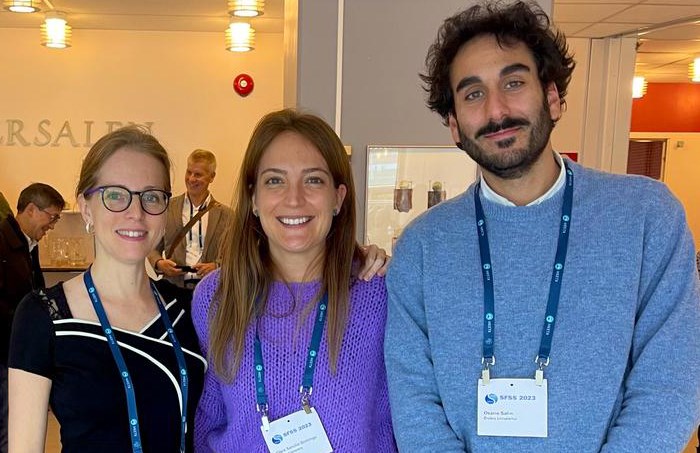New psychological sleep research presented at Örebro sleep conference

From left to right: Annika Norell, Clara Sancho Domingo & Osame Salim
On October 10-12, the Swedish Society for Sleep Research and Sleep Medicine (SFSS) held a conference at the USÖ. Three clinical psychologists from CHAMP participated: associate professor Annika Norell, visiting doctoral student Clara Sancho Domingo and doctoral student Osame Salim.
Annika participated in an editor's symposium on the book "Sömn vid hälsa och ohälsa” (Sleep in health and illness), where she described how co-morbidity is common between different forms of sleep problems and also with other types of mental and somatic health issues. People who sleep poorly often have several different types of problems with their health, and often issues with personal finances and their relationships. Therefore, it is not surprising that the suicide risk is higher for people who sleep poorly. Annika urged the conference participants to pay attention to signs of suicide risk and preferably, to ask their patients questions about their mental well-being.
Clara presented analyzes she has conducted on the sleep habits of teenagers from Skåne, which demonstrates that we should not assume that all "night owls" are the same. Some seem to be doing quite well despite their late sleep habits while others are worse off during daytime. Clara emphasized that knowledge about this difference means that we can better focus on helping those who need it the most, which is important when school health resources are scarce.
Osame participated with a poster about how various negative psychological processes (such as excessive worry) are involved in most sleep disorders and not only in insomnia, as previously assumed. Even when controlling for comorbid insomnia, many of these associations remained. The findings stimulates new ideas about testing psychological therapy methods that successfully treat insomnia on more sleep disorders. The poster led to many exciting conversations with participants working with sleep apnea, restless legs and other sleep disorders.
